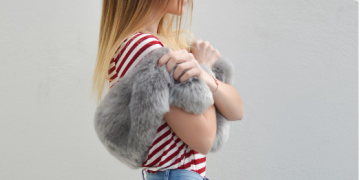Introduction to Ethical Fashion and Cultural Heritage
Ethical fashion encompasses practices that prioritize social and environmental responsibility throughout the supply chain. When it intersects with cultural heritage, it becomes a powerful tool for preserving traditional craftsmanship and indigenous knowledge. Cultural heritage refers to the customs, traditions, and artistic expressions passed down through generations, reflecting a community’s identity and history. In the fashion industry, preserving cultural heritage is essential for maintaining diversity and promoting sustainable development.
The Threat to Cultural Heritage
Traditional craftsmanship and cultural practices face numerous threats in today’s globalized world. The rise of mass production and fast fashion has marginalized artisanal communities, leading to the loss of unique skills and traditions. Additionally, economic pressures and lack of market access further endanger cultural heritage, as artisans struggle to compete with cheaper, mass-produced alternatives.
Empowering Artisans Through Ethical Fashion
Ethical fashion offers a solution for preserving cultural heritage by providing a platform for artisans to showcase their skills and traditions. By collaborating with designers and brands committed to ethical principles, artisans can access new markets and opportunities for growth. Ethical fashion not only empowers artisans economically but also promotes cultural exchange and appreciation.
Reviving Traditional Techniques
One of the key aspects of ethical fashion is the revival of traditional techniques and craftsmanship. By incorporating traditional skills into modern designs, designers can create unique and culturally rich garments that celebrate heritage. Brands such as Maiyet and Stella Jean have successfully integrated artisanal techniques into their collections, showcasing the beauty and intricacy of traditional craftsmanship.
Fair Trade and Ethical Sourcing
Fair trade principles play a crucial role in empowering artisans by ensuring fair wages, safe working conditions, and respect for cultural traditions. Ethical sourcing practices, such as traceability and transparency, guarantee that artisans receive fair compensation for their work. Brands that prioritize ethical sourcing contribute to the preservation of cultural heritage while promoting sustainable livelihoods for artisan communities.
Community Development and Empowerment
Ethical fashion has a profound impact on artisan communities, promoting social and economic empowerment. By providing stable employment and income opportunities, ethical fashion helps improve living standards and support community development projects. Artisans are empowered to preserve their cultural heritage while contributing to their local economies in a sustainable manner.
Cultural Exchange and Appreciation
Fashion serves as a medium for cultural exchange and appreciation, bridging gaps between communities and fostering understanding and respect for diverse traditions. By showcasing traditional craftsmanship and indigenous designs, ethical fashion promotes cross-cultural dialogue and appreciation for the richness of global heritage.
Sustainability and Environmental Stewardship
In addition to social impact, ethical fashion also prioritizes environmental sustainability. By using sustainable materials and production practices, brands minimize their ecological footprint and contribute to environmental conservation efforts. Sustainable fashion not only preserves cultural heritage but also protects the natural resources essential for artisanal craftsmanship.
Challenges and Opportunities
Despite its benefits, integrating traditional craftsmanship into the fashion industry poses challenges such as access to markets, financial barriers, and the need for skill development. However, these challenges also present opportunities for innovation and collaboration. By addressing these obstacles and leveraging technological advancements, the fashion industry can create new pathways for preserving cultural heritage.
Education and Awareness
Educating consumers about the value of ethical fashion and the importance of preserving cultural heritage is crucial for driving change. By raising awareness about the impact of purchasing decisions on artisan communities, consumers can make informed choices and support brands that prioritize ethical practices. Education initiatives and awareness campaigns play a vital role in promoting sustainable fashion and cultural preservation.
Policy and Advocacy
Government policies and regulations play a critical role in supporting artisanal industries and promoting ethical practices in the fashion sector. Advocacy efforts for fair labor practices and cultural preservation can influence policy decisions and create an enabling environment for sustainable development. By advocating for policy reforms and supporting initiatives that promote ethical fashion, stakeholders can contribute to positive change within the industry.
Case Studies of Success
Numerous initiatives and brands have demonstrated success in empowering artisans and preserving cultural heritage through ethical fashion. Organizations such as Nest and the Ethical Fashion Initiative have facilitated collaborations between designers and artisans, resulting in economic empowerment and cultural preservation. These success stories highlight the transformative power of ethical fashion in supporting artisan communities and promoting sustainable development.
Measuring Impact
Measuring the social and economic impact of ethical fashion is essential for assessing progress and identifying areas for improvement. Metrics such as income generation, job creation, and cultural preservation can help evaluate the effectiveness of interventions and guide future initiatives. By tracking impact indicators and sharing best practices, stakeholders can drive continuous improvement in the field of ethical fashion.
Future Directions
Looking ahead, the future of ethical fashion and cultural heritage preservation looks promising. As consumer demand for ethically-made products continues to rise, brands have an opportunity to scale up their efforts and expand their impact. Technological innovations, such as blockchain and digital platforms, hold the potential to revolutionize supply chain transparency and traceability, further enhancing the integrity of ethical fashion.
Conclusion
In conclusion, ethical fashion plays a vital role in preserving cultural heritage and empowering artisan communities. By integrating traditional techniques into modern designs, promoting fair trade principles, and prioritizing sustainability, ethical fashion promotes cultural exchange, fosters economic empowerment, and contributes to environmental conservation. As consumers become increasingly aware of the social and environmental impact of their purchasing decisions, ethical fashion offers a pathway towards a more sustainable and inclusive future.

FAQs:
- What is ethical fashion?
- Ethical fashion refers to practices that prioritize social and environmental responsibility throughout the supply chain, including fair labor practices, sustainable materials, and transparency.
- How does ethical fashion empower artisans?
- Ethical fashion provides economic opportunities for artisans by promoting fair wages, safe working conditions, and respect for cultural traditions. By collaborating with designers and brands committed to ethical principles, artisans can access new markets and opportunities for growth.
- Why is cultural heritage important in the fashion industry?
- Cultural heritage is important in the fashion industry because it reflects the identity and history of communities, enriches design aesthetics, and promotes diversity. Preserving cultural heritage through ethical fashion ensures the continuity of traditional craftsmanship and indigenous knowledge.
- What are some challenges faced in integrating traditional craftsmanship into the fashion industry?
- Challenges in integrating traditional craftsmanship into the fashion industry include access to markets, financial barriers, and the need for skill development. However, these challenges also present opportunities for innovation and collaboration.
- How can consumers support ethical fashion and cultural heritage preservation?
- Consumers can support ethical fashion and cultural heritage preservation by making informed purchasing decisions, supporting brands that prioritize ethical practices, and advocating for policy reforms that promote sustainability and fair labor practices.













